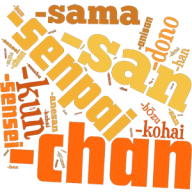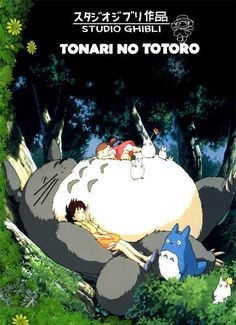
As I stated in my previous posts, Navigating Genre and Navigating Media, I’m not a well seasoned expert to all things anime/manga related. When anime characters start calling people “senpai” and ” <first name> – chan,” my first though was “…are, are they dating now?”
So, I’ve learned through my research that Japanese people are all about honoring one another. There are multiple words and suffix (that can be tacked onto names) to show respect. It may take a bit of time, but given how important reverence is to Japanese culture, it’s wise to brush up on these terms. Being the kind-hearted person I am, I’m sharing with you what I’ve learned over the last couple years in a series of posts called A Guide to Common Anime/Manga Lingo for Newbies.
So lets review some words you may encounter when it comes to Japanese honorifics. Enjoy!
Honorifics

Senpai – anyone who is above you in terms of organizational hierarchy (age, class, work rank). For example, at school, students in higher grades are senpai. In business, those with more experience than you are senpai.
However, one would not refer to a teacher or boss using this term. You would use the term Sensei (see definition below)
Kōhai – similar to Senpai, this term is used to denote someone in a junior position. However, it is not normally used as an honorific. Instead, someone who is of equal or lower rank tend to be referred to with –Kun (see definition below)
San – a common title of respect of respect used between equals of any age by adding it to the end of someone’s name. It can be used in both formal and informal situations.
Sama – another common title of respect. It is used for people of higher rank than oneself, to refer to guests/customers, or towards someone you admire.
People who use it in relation to themselves, it is an expression of arrogance; as in praising oneself.
Kun – used by people in senior ranking to refer to those of junior status. Although it can be used for either gender, it is mostly associated with male children/teenagers/friends. It is often used by males and females to address a male they are emotionally attached to (or have known for a long time.)
Chan – meant to sound like a “cute” version of San, Chan is used as an expression for someone the speaker finds endearing.
It is often used to refer to babies, young children, grandparents, and teenagers. It can also be used towards animals, lovers, clothes, friends, or young women.
Bō – like Chan, this is an expression of endearment, used exclusively for boys.
Sensei – this term is used to address someone who has achieved a certain level of accomplishment. It is used to address teachers, doctors, politicians, lawyers, and other authority figures.
Family Honorifics

Otōsan – Father
Ojisan – Uncle
Ojiisan – Grandfather
Okāsan – Mother
Obasan – Aunt
Obāsan – Grandmother
Oniisan – Big Brother
Onēsan – Big Sister
<First Name> + – Chan – used to describe one’s children, younger siblings, or other junior family members.
Kāsan – when a man addresses his own wife
Tōsan – when a woman addresses her own husband
Common Occupations

Tomodachi – Friend
Tonari – Neighbor. Can be used to literally describe neighbor, but can also mean someone sitting next to you in class.
Keisatsu – Police
Hime – Princess
Gaka or Geijutsu Ka – Painter/Artist
Kashu – Singer
Hei Shi – Soldier
Kyoushi – Instructor/Professor; Senpai may also be used
Gakusei – Student
Shougaksuei – Elementary School Student
Chuugakusei – Junior High School Student
Koukousei – High School Student
Daigakusei – College Student
September 14, 2016 at 4:10 pm
Nice guide for newbies to follow. Reminds me of the ones they used to put in manga when it first got popular in the states
LikeLike
September 16, 2016 at 2:40 am
Thank you! I didn’t know they use to put them in Manga. Thats pretty cool.
LikeLiked by 1 person
September 16, 2016 at 3:22 am
Yeah. It was mostly in TokyoPop manga. Don’t see it much today though
LikeLiked by 1 person
September 14, 2016 at 5:44 pm
Maybe you could include aniki or aneki, which are alternative, informal ways of saying older brother and sister respectively. I think aniki and aneki are worth a mention since some younger siblings may refer to their older brother or sister as aniki or aneki to not look too clingy (like Noe in D-Frag before she becomes flustered and starts calling Kazama onii-chan). Also worth noting that the terms are also used by gang members/delinquents.
There’s also anego for older sisters/leaders of female delinquent groups. And then there’s the formal aniue and aneue, too. But these aren’t as common.
This is a very thorough list. Well done!
LikeLike
September 16, 2016 at 2:40 am
Thank you so much for the suggestions! I’ll add them tomorrow! Also, thank you for the compliment 🙂 I appreciate it.
LikeLike
September 19, 2016 at 9:55 am
This is such a useful piece! Thank you 😀
LikeLike
September 19, 2016 at 2:46 pm
Thank you so much! I appreciate your support.
LikeLike
September 21, 2016 at 5:03 pm
This is a good list to make the ride smoother, will definitely help lost people~!
LikeLike
September 22, 2016 at 12:41 am
Thank you!
LikeLike